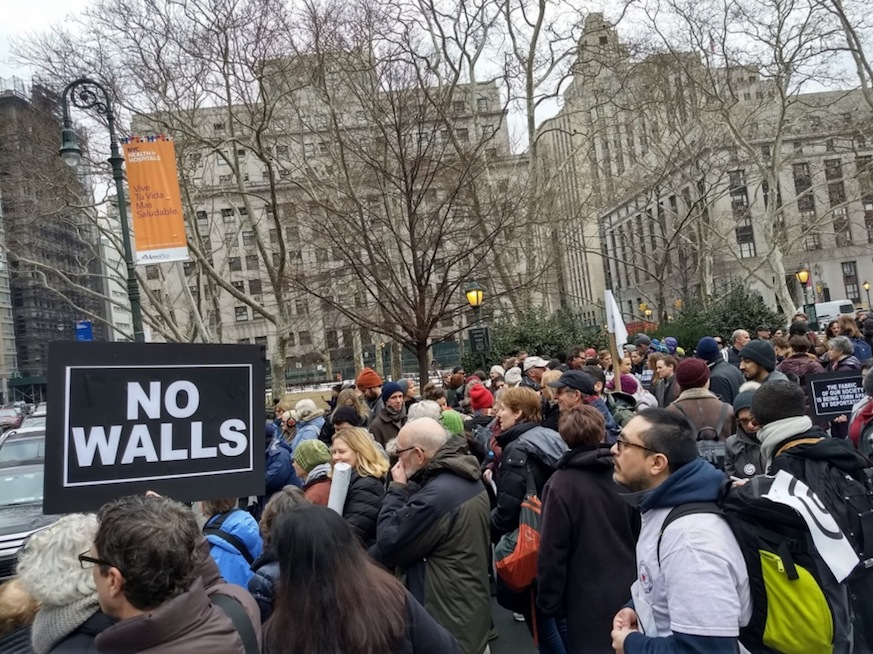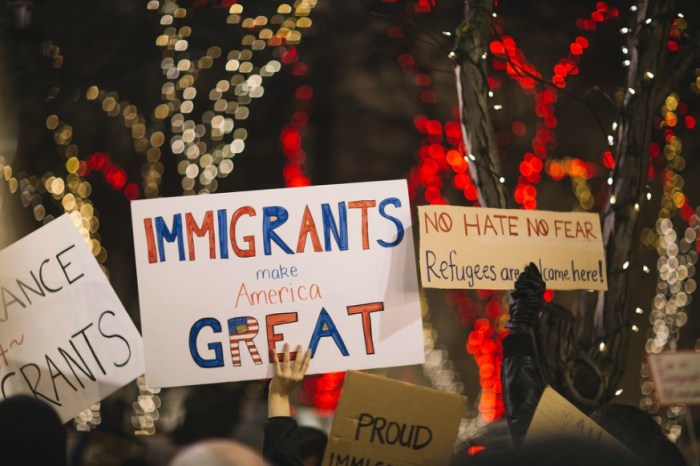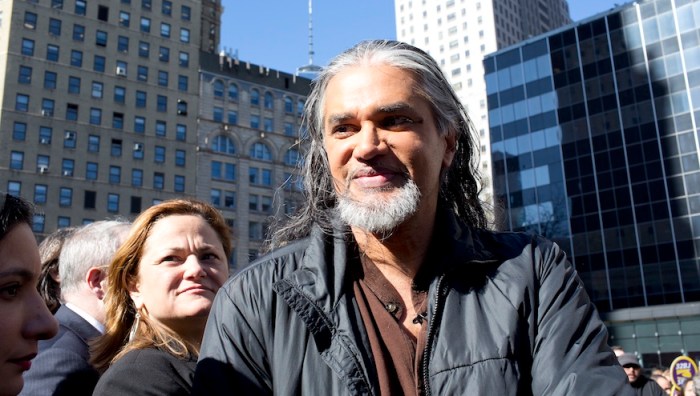President Donald Trump is following through on his promise to crack down on illegal immigration, which means America’s estimated 11 million undocumented residents live in constant fear of deportation.
During Trump’s first 100 days in office from Jan. 22 to April 29, U.S. Immigration and Customs Enforcement arrested 41,317 people who were in the country illegally — a 40 percent increase over the same period in 2016.
While nearly 75 percent of those arrested were convicted criminals, arrests of noncriminal residents whose only crime was being undocumented have jumped 157 percent, from 4,600 between January and April of last year to 10,800 arrests during the same period this year.
“People are living in fear. They are afraid to come out in public,” said Patricia Sobalvarro, executive director of Agencia ALPHA, a Boston-based organization that helps undocumented immigrants find pathways to citizenship.
One of the biggest fears for undocumented immigrants is that they could be separated from their children.
Miguel Andrade of Juntos, a Philadelphia-based organization that advocates for the rights of immigrants and the Latin community, said he is already seeing emboldened enforcement play out in his city.
“We are seeing that people are regaining a level of fear because ICE is starting to be more aggressive. We are seeing raids happening and the use of a lot more rogue tactics during arrests,” he said. Since Trump took office, the federal government has arrested an average of 400 people per day on civil immigration charges.
“The executive order that President Trump signed totally changed the definition of priority for immigration arrests. Under Obama, there were tons deportations, we all know that – the contrast is that under Obama, the priorities were that the deportations were of people who had committed those more serious crimes. The mantra was ‘felons, not families,’” Sobalvarro said.
ICE said its agents and officers have been given clear direction to focus on threats to public safety and national security, but are enforcing “immigration laws fairly and across the board.”
“When we encounter others who are in the country unlawfully, we will execute our sworn duty and enforce the law,” ICE acting Director Thomas Homan said in a statement. “As the data demonstrates, ICE continues to execute our mission professionally and in accordance with the law, and our communities will be much safer for it.”
Immigrant rights advocates challenge the notion that stricter immigration enforcement equals safer communities.
Liza Ryan, director of organizing with Massachusetts Immigrant and Refugee Advocacy Coalition (MIRA), describes a chilling effect communities experience when immigrants are too afraid to report crimes due to fears of deportation.
Already some cities are seeing the effect — Houston has seen a 40 percent drop in the number of reported rapes during Trump’s first few months in office, the Houston Chronicle reported. L.A. has seen similar dips in crime reporting among Latinos.
One of the reasons, Ryan said, is that the federal government is increasingly trying to recruit local law enforcement to act as immigration officers, asking people about their status and holding them for ICE agents when it is in question.
To stop this in Massachusetts, MIRA has sponsored a state bill called that Safe Communities Act, which would block state resources from being used to carry out federal immigration law. The act also aims to block state resources from being used to create a database of people’s ethnicity, sexual preference or religion (think Muslim registry) and dissuades local police from detaining prisoners for ICE after they are legally releasable.
“Crime actually increases when local police [are] collaborating with ICE, instead of decreasing. With this bill, we are just trying to protect our communities and make them safe so local law enforcement can do their jobs,” Ryan said.



















